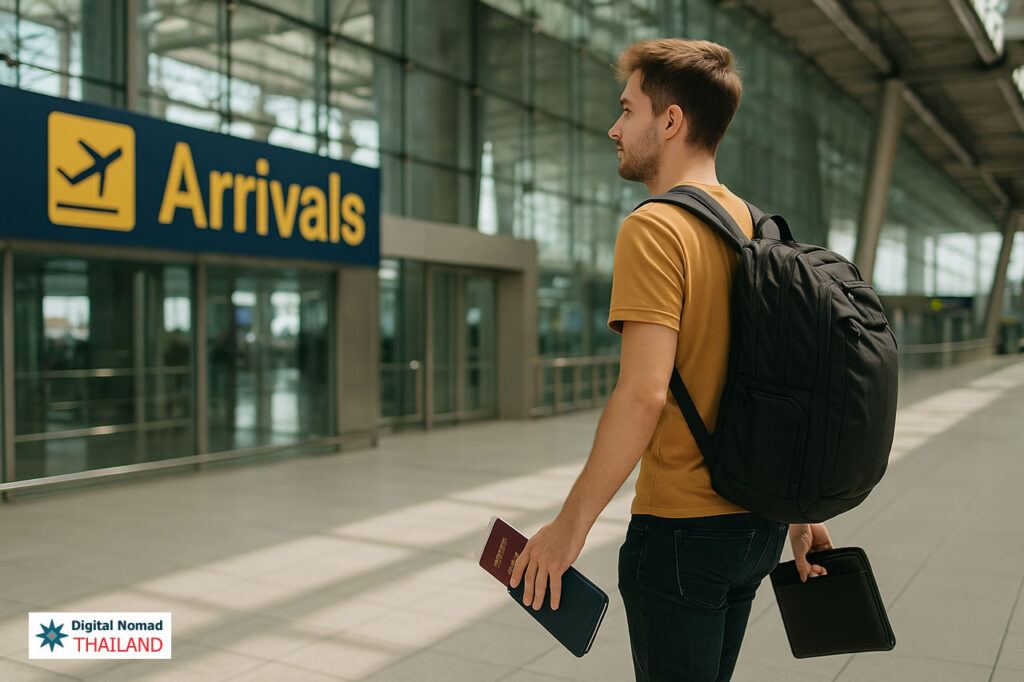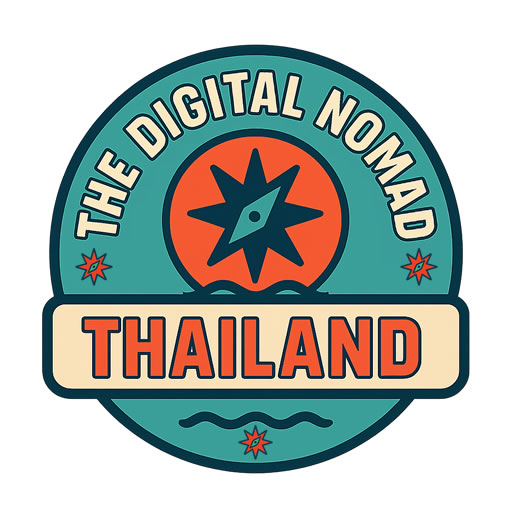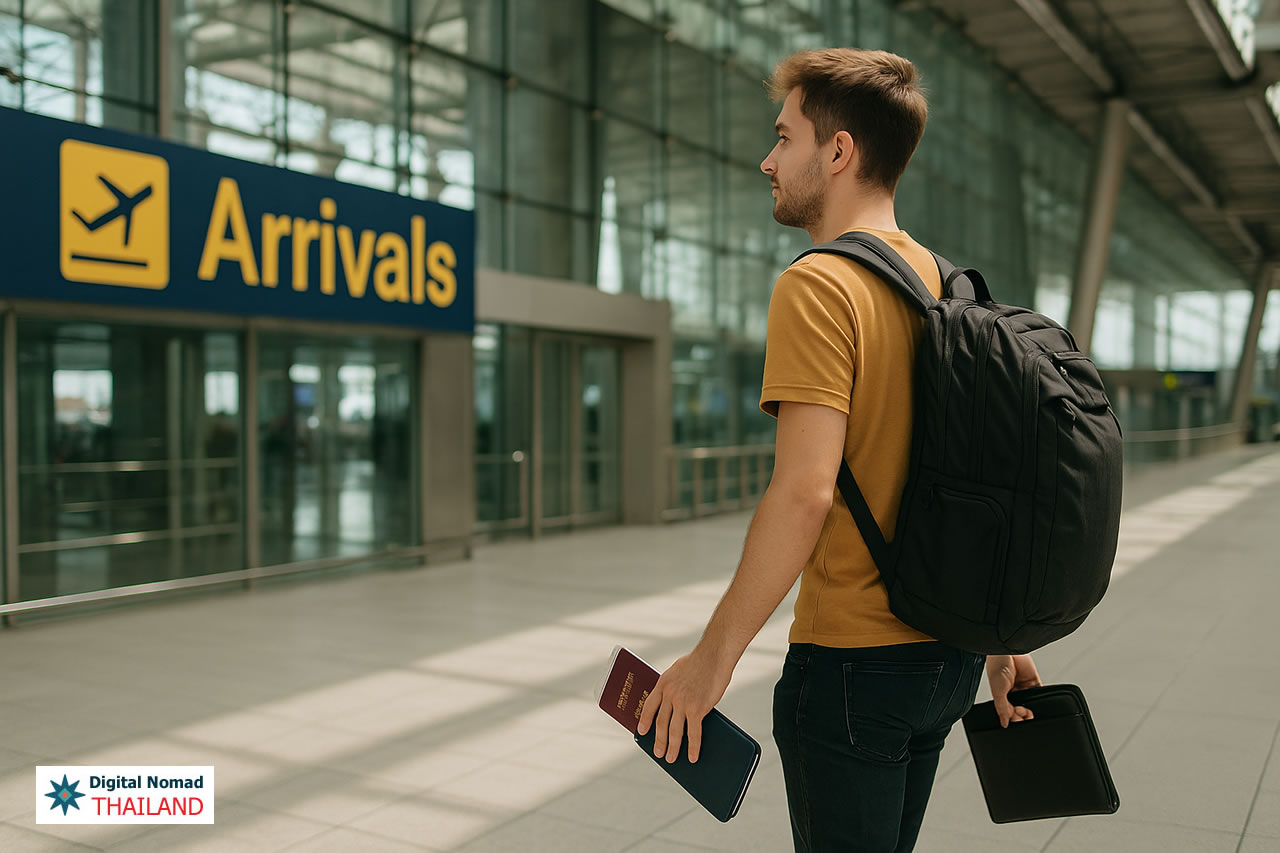
The buzz is real: Thailand finally has a visa with “digital nomad” in the name. The Destination Thailand Visa (DTV) launched in 2024, promising long-term stays for remote workers, freelancers, and location-independent travelers.
On paper, it sounds like a dream—skip the visa runs, stay legally for years, and enjoy life in the Land of Smiles. But like most things in Thailand, the reality is a little more complicated.
In this guide, we’ll break down what the DTV actually offers, who can apply, and whether it’s really the best option for digital nomads in 2025—or just another overhyped visa.
What Is the DTV?
The Destination Thailand Visa (DTV) is a new long-stay visa introduced in 2024. It was designed to attract remote workers, freelancers, and “work-from-anywhere” travelers who want to base themselves in Thailand without constantly worrying about border runs.
Here are the basics in plain English:
- Length of stay: Up to 5 years total, issued in 180-day blocks.
- Target group: Digital nomads, freelancers, and those working remotely for companies abroad.
- Work rights: You can legally live in Thailand, but you cannot take a job with a Thai employer.
- Cost: ฿10,000 per visa block (about USD 280).
- Flexibility: Multiple entries allowed—you can leave and re-enter as much as you like within your visa period.
📌 In short: it’s Thailand’s first real attempt to recognize the digital nomad lifestyle. But whether it’s the smartest option depends on your situation—which we’ll cover below.
| Visa Type | Stay Length | Cost | Work Rights | Best For |
|---|---|---|---|---|
| DTV (Destination Thailand Visa) | Up to 5 years (180-day blocks) | ฿10,000 per block | Remote work only (no Thai employer) | Digital nomads & freelancers |
| Tourist Visa | 60 days (extendable to 90) | ฿1,900 for extension | No work allowed | Short stays & travelers |
| Education Visa (ED) | 6–12 months (renewable) | Varies (฿20,000–฿40,000 course fees) | No work allowed | Language learners & long-term stayers |
Eligibility & Requirements
The DTV isn’t a free pass for everyone with a laptop. While the Thai government has positioned it as a “digital nomad visa,” it comes with a clear set of rules.
Here’s what you’ll need to qualify:
- Valid passport with at least 6 months remaining.
- Proof of remote work or freelance activity — typically a letter from your employer or evidence of client contracts.
- Financial means to support yourself (the official minimum hasn’t been heavily enforced yet, but expect to show bank statements).
- Clean criminal record (a police clearance certificate may be requested).
- Health insurance that covers your stay in Thailand. (👉 see my Health Insurance for Digital Nomads in Thailand guide).
The process is handled through Thai embassies and consulates, and you’ll need to reapply or extend every 180 days to keep the visa active.
📌 In short: the requirements are lighter than business or retirement visas, but heavier than just flying in on a tourist stamp.
How to Apply for the DTV (Quick Overview)
The process is fairly straightforward compared to other long-term visas:
- Gather your documents – passport, proof of remote work, bank statements, insurance, and (in some cases) a police clearance.
- Submit your application at a Thai embassy or consulate. Some locations also allow partial online submission.
- Pay the fee – ฿10,000 per 180-day block.
- Wait for approval – processing can take anywhere from a few days to a few weeks.
- Enter Thailand and activate your DTV – you’ll get 180 days per entry, with multiple entries allowed.
📌 This is just the short version. For the full breakdown of forms, documents, and embassy procedures, check the complete DTV visa guide on Thrive in Thailand
Pros of the DTV for Digital Nomads
On the surface, the Destination Thailand Visa does have some big advantages for remote workers.
1. Longer Stay Legally
Instead of hopping around on tourist visas or juggling border runs, the DTV gives you up to 180 days at a time and the option to renew, for a maximum of five years. That’s a huge upgrade in stability.
2. Multiple Entries Allowed
You’re free to leave and re-enter Thailand as often as you want during your visa validity. That means weekend trips to Vietnam or Bali don’t break your visa.
3. Tailored for Nomads
Unlike the Education Visa (ED) or other “workarounds,” the DTV is officially marketed for digital nomads and freelancers. That recognition alone makes life easier when explaining your status at immigration.
4. Simpler Requirements
Compared to business or retirement visas, the DTV has relatively light paperwork. You don’t need a Thai employer, a local company, or a huge amount of money locked in a Thai bank.
Cons & Limitations of the DTV
The DTV isn’t a golden ticket. There are trade-offs you’ll want to consider before jumping in.
1. Short Blocks, Frequent Renewals
Even though the visa can last up to five years, it’s only issued in 180-day chunks. That means you’ll be renewing and paying fees twice a year—less hassle than border runs, but still an ongoing chore.
2. No Local Work Rights
The DTV lets you live in Thailand, but you can’t work for Thai companies or earn income inside the country. If you plan to take on local clients or jobs, you’ll still need a proper business or work visa.
3. Costs Add Up
฿10,000 (around USD 280) per block doesn’t sound bad until you realize it repeats every 180 days. Over five years, the total can be much higher than juggling tourist visas.
4. Rules Still Evolving
The DTV is new, and like many Thai visas, policies can shift. Requirements may change depending on the embassy, and enforcement might not be consistent yet.
5. Better Alternatives for Some
If you’re staying less than six months, a simple tourist visa is cheaper and easier. For long-term expats with stable income, other options (like the SMART Visa or Business Visa) may be more practical.
Alternatives for Digital Nomads in Thailand
The DTV isn’t the only way to stay in Thailand as a remote worker. Many nomads still choose other visa options depending on how long they plan to stay and how much paperwork they want to deal with.
Tourist Visa & Visa Exemption
- The easiest route for short-term nomads.
- 30–60 days, extendable to 90 in many cases.
- Cheap, straightforward, and widely used—ideal if you’re testing Thailand before committing.
Education Visa (ED)
- Popular with nomads who want to study Thai language or another approved subject.
- Gives 6–12 months of stay, renewable.
- Higher cost due to school fees, and technically for study, not remote work.
Other Long-Term Options
- Thailand has several other visas (Business Visa, SMART Visa, Retirement options, Privilege Visa) that may fit depending on your situation.
- Most of these require higher costs, more paperwork, or specific qualifications.
📌 Want to see the full breakdown of every long-term visa option? Check out the detailed guide on Thrive in Thailand – Long-Term Visa Options
Verdict: Is the DTV Worth It?
The Destination Thailand Visa is a step forward—it finally acknowledges digital nomads as a group Thailand wants to attract. If you’re planning to stay long-term, value legal clarity, and don’t mind the recurring fees, it could be the right choice.
But for many nomads, the DTV may feel overcomplicated compared to just using a tourist visa for shorter stays, or considering other long-term visas if you’re more settled.
💬 Would you go for the DTV, or stick with tourist visas and short-term options? Share your thoughts in the comments.

